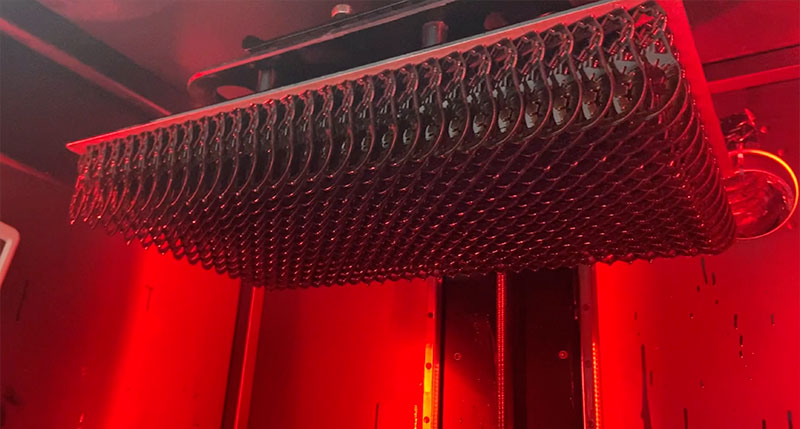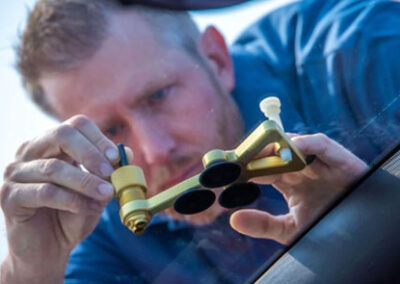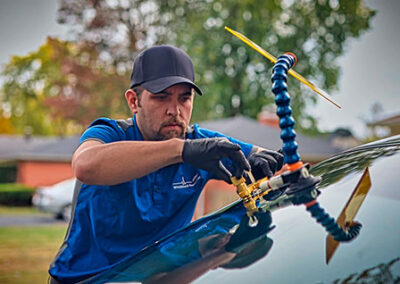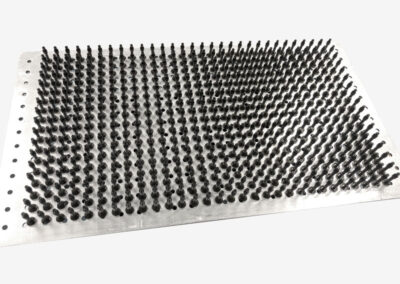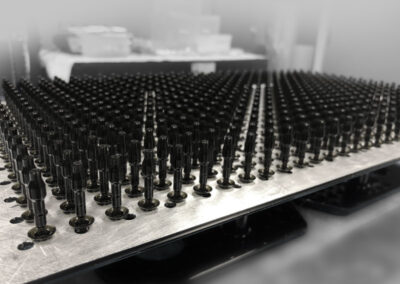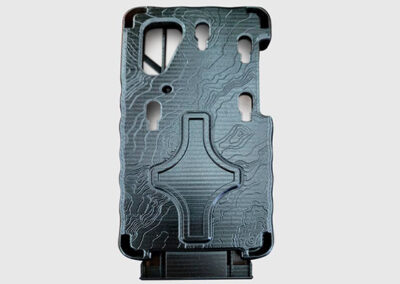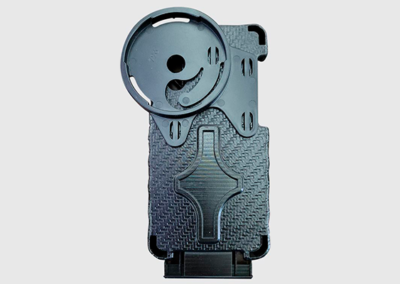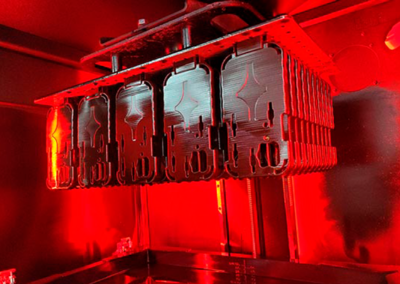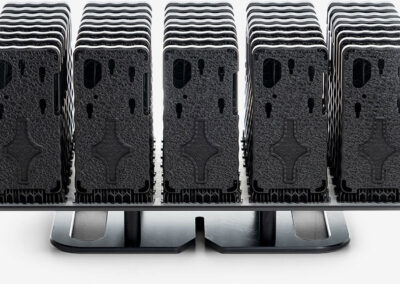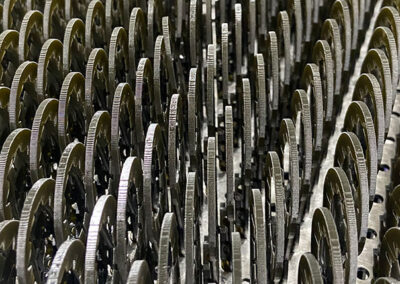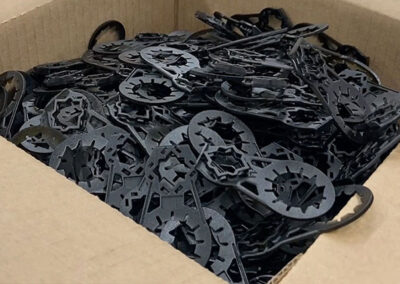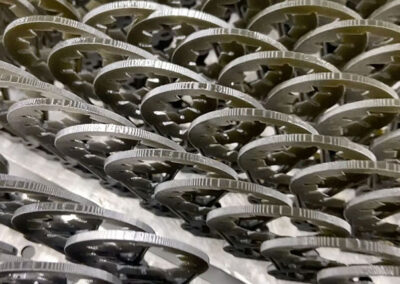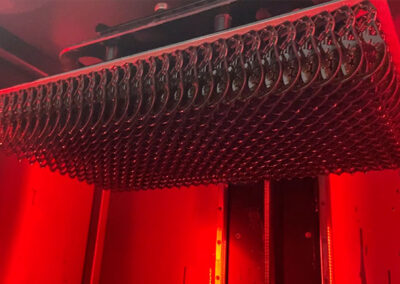3D printing solutions
Industrial parts
To be successful at making parts, as opposed to prototypes, you need fast, cost-effective, reliable printing processes with functional resins.
Photocentric’ s LCD technology enables lots of parts to be printed very quickly. Our software and design for Additive skills enable the parts to be designed for mass-manufacture.
Our resins deliver functional parts that will last for decades in industrial applications.

Solving solves windshield repair woes with Photocentric LC Magna
The 3D Printing Store (3DPS) has used Photocentric’s LC Magna to manufacture a custom drill collet, making windshield repair easier and more efficient than ever before. Photocentric partner 3DPS was approached by Tim Evans and his company Crack Eraser – which helps other entrepreneurs start their own auto glass repair businesses – to develop a part for its repair kit system.
The proprietary technology has helped Crack Eraser to solve the most challenging aspect of windshield repair, that of drilling into the top layer of laminated windshield glass at the point of impact where damage occurred.
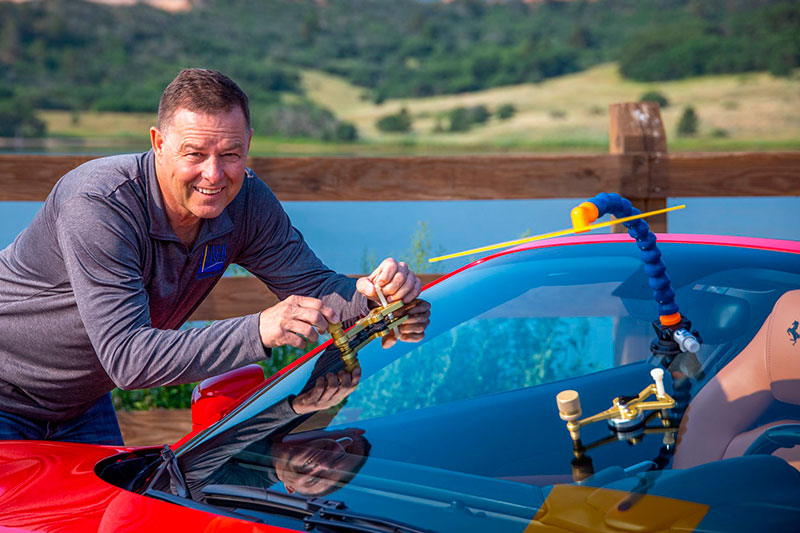
“The 3D Printing Store was invaluable in supporting us in development of this industry leading product through months of testing and refinement. We can’t thank the 3DPS enough for their outstanding support in the development of our industry leading 3D printed Drill Stop Collet™!”
Tim Evans
Owner, Crack Eraser

Phone Skope focuses on LC Magna solution to solve manufacturing challenge
Digiscoping leader, Phone Skope, has adopted a Photocentric additive manufacturing solution to manufacture its custom-moulded digiscoping adaptors. The US-based manufacturer makes precision engineered adaptors for almost any smartphone, enabling a smartphone camera to capture enhanced images and video through a scope for birding, wildlife, microbiology and astrology applications.
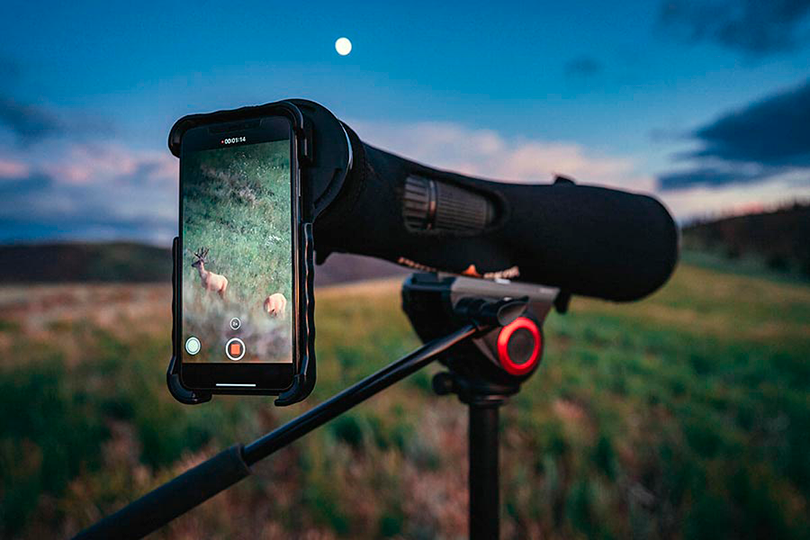
““The speed and agility of additive manufacturing has given us the ability to expand coverage for more phones giving us a larger market to pursue”
Jason Bairett,
Operations Manager, Phone Skope
1,000,000 3D Printed Part Order For Adhesives Technology
Merit3D, a leading additive manufacturing company, is producing 1,000,000 hangers for Adhesives Technology using 3D printing technology. The hangers are required for every project Adhesives’ undertakes, but the production process was halted due to the unavailability of the injection mold tool.
Merit3D’s solution helped Adhesives Technology eliminate the extra cost and wait time for delivery of a new tool and bring manufacturing back to the USA.

Adapt and Innovate with 3D Printing
As a manufacturer of equipment for laundry services, Girbau sought to improve the efficiency of their folding machines. In realising that the air flow of their folding machine was not optimal for the precision folding they needed, Girbau turned to 3D printing for the speed, efficiency, limitless design possibilities, and cost-effectiveness of this technology to create the single solution part they needed to optimise their folding machines.
“Sculpteo’s experts supported us throughout the printing process so we could go on and print the model with the best solution to match our challenges.”
Sylvian Ferris
R&D Designer, Girbau
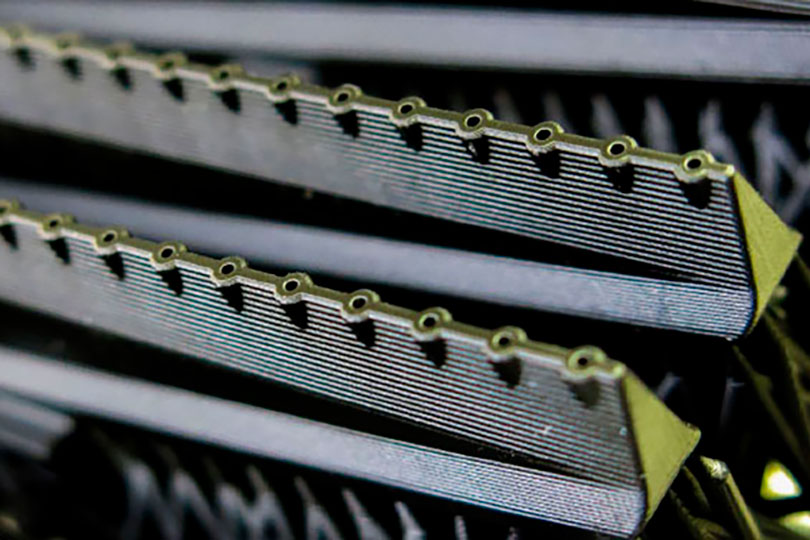
Adapt and Innovate with 3D Printing
As a manufacturer of equipment for laundry services, Girbau sought to improve the efficiency of their folding machines. In realising that the air flow of their folding machine was not optimal for the precision folding they needed, Girbau turned to 3D printing for the speed, efficiency, limitless design possibilities, and cost-effectiveness of this technology to create the single solution part they needed to optimise their folding machines.
Challenges
1. Redesigning of a part within a folding machine while still maintaining a competitive price point.
2. Using a material that is strong enough to create small cavities within the part to withstand high pressure.

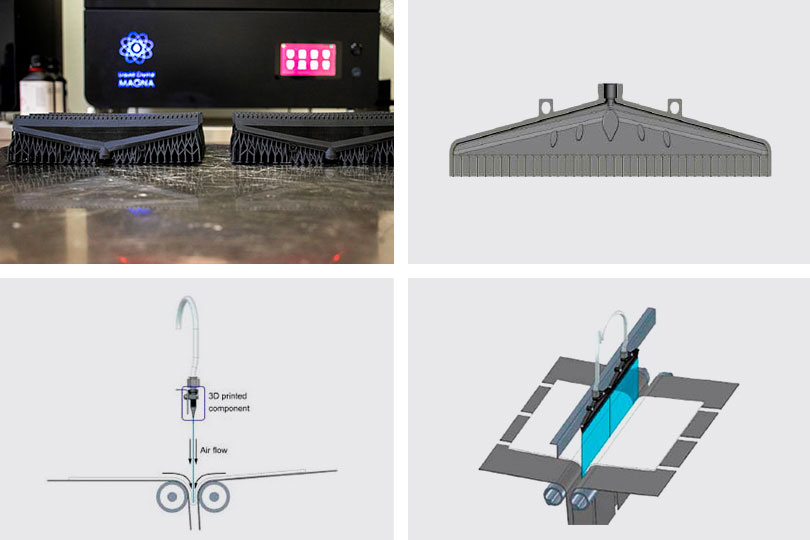
Solution
Optimising internal geometry for better performances
With the optimisation of the inner geometries of the part, the quantity of pressured air required to fulfill its function was reduced from 5.5 bars to 4 bars which resulted in lower air consumption and a more sustainable machine. The small channels created within the part to direct airflow significantly reduced the noise impact the machine makes. Previously with the basic drilled tube part, the airflow did not have a precise direction and the single tunnel echoed the sound of the air pressure.
Better design at a competitive price
During their additive design process, Girbau was able to design a part with complex geometries, integrated functional parts and lightweight and compact. The additive nature of 3D printing technology means that creating a complex part does not come at a higher price and in fact can be sometimes cheaper since less material is used. With these design possibilities, Girbau was able to create a single solution part that was cost-effective. This would not have been possible with traditional manufacturing methods since the design possibilities for traditional manufacturing require expensive moulds and large production volumes to make up for the cost.
Making the most of intergrated functions
The simplification of their part which now had integrated functions such as supports that made it possible to easily attach their part to a rack within the folding machine. A more compact model that would not be possible to find in the market or challenging to create with traditional manufacturing methods.
Ultracur3D® EPD 1006 & LC Magna : The precision needed to meet manufacturing challenges
With a final design, Girbau turned to Sculpteo’s online printing service to create a prototype that would potentially be the final part for their machines. They decided on SLS (selective laser sintering) technology and Nylon PA12 material. When testing the part, they realised that there was excess powder from the PA12 material blocking the airflow. With Sculpteo’s responsive customer support, Girbau was advised to use LCD (Liquid Crystal Display) printing technology to create tiny channels within the part, which powder technology cannot do, using the resin material EPD 1006. Parts printed with resin materials have high accuracy and are perfect for designs that require high precision, like Girbau’s part.
The 3D Printing Store solves windshield repair woes with Photocentric LC Magna
The 3D Printing Store (3DPS) has used Photocentric’s LC Magna to manufacture a custom drill collet, making windshield repair easier and more efficient than ever before. Photocentric partner 3DPS was approached by Tim Evans and his company Crack Eraser – which helps other entrepreneurs start their own auto glass repair businesses – to develop a part for its repair kit system. The proprietary technology has helped Crack Eraser to solve the most challenging aspect of windshield repair, that of drilling into the top layer of laminated windshield glass at the point of impact where damage occurred. Using Photocentric LC Magna, 3DPS was able to manufacture over 1,000 drill collets, within acceptable tolerances, in just five hours of print time.
Challenge
The precision 3D printed component is used to hold the tiny glass drill used in windshield repair, and it has made this critical drilling process quick, reliable, and automatic. In the past, learning the correct technique required training, lots of practice, a high degree of fine motor skills and a lot of time to complete a repair successfully.
Solution
The new part has simplified the job and enables Crack Eraser customers to make the perfect drill hole every time. The 3D Printing store said that Photocentric technology was essential in both the rapid prototyping and production phases. They were able to print multiple drill collets to test the depth the drill bit would rest in each collet, and assess whether it was leading to a successful windshield repair. Once the design was finalised, production was fast and post processing was minimal.
“It’s very encouraging to see an innovative entrepreneur like Tim solving challenges by using additive manufacturing technology with our partner The 3D Printing Store,” “With LC Magna’s large build volume, it’s an excellent choice to produce end-use parts quickly and efficiently at scale, delivering speed, volume and cost savings to businesses. The intricate nature of this part means that precision tools are required, and in this case, LC Magna has been able to provide an agile and flexible solution for manufacture.’’
Sally Tipping – New Business Development Director, Photocentric
Phone Skope focuses on Photocentric LC Magna solution to solve manufacturing challenge
Digiscoping leader, Phone Skope, has adopted a Photocentric additive manufacturing solution to manufacture its custom-moulded digiscoping adaptors. The US-based manufacturer makes precision engineered adaptors for almost any smartphone, enabling a smartphone camera to capture enhanced images and video through a scope for birding, wildlife, microbiology and astrology applications. The Photocentric additive manufacturing solution – carried out via manufacturing service provider partner Merit3D – includes Photocentric LC Magna printers and post-processing units, allowing adaptors to be modelled and created at speed without the need for costly and time-consuming moulding.
A fast moving market – The Challenge
“Phone Skope’s manufacturing was challenged by the fast-moving nature of the market, requiring its products to be compatible with a huge number of new phone models released every year,” says Sally Tipping, Photocentric. “In order to create a compatible digiscoping adaptor for a particular phone model, a mould would have to be created for each new case, and there was always a chance that the phone itself may not be a commercial success. This meant that Phone Skope had to choose between which models to support and create moulds for in order to maintain viability. 3D printing was an excellent solution to this problem, giving Phone Skope the flexibility to bring a greater variety of adaptors to market at speed without the cost implications of creating additional moulds. Phone Skope products are renowned around the world for their precision and durability, and so it was also vital that these characteristics were retained without compromise.”
Photocentric and LC Magna – The perfect solution
To produce the cases, Merit3D used its 8 Photocentric LC Magna printers and Photocentric post-processing units, the Air Wash L and Cure L2 units. Merit3D also chose Photocentric’s Daylight Magna Duramax resin. Phone Skope’s design is a simple two-part system that is interchangeable and works with most smartphone and optics combinations. With just a couple of small design changes to the 3D model, a new case could be designed and printed at a large scale with minimal revisions required using additive manufacturing. This reduced upfront costs and increased the production time considerably, with consistent high-quality output.
The LC Magna suits a wide range of manufacturing applications, offering significant print speed, build volume and cost advantages. Merit 3D also knew that the high-quality prints produced by the LC Magna would significantly reduce the time spent on final finishing thereby further reducing cost and increasing speed to market.
Photocentric’s Studio software and 4D-additive was also used to incorporate the supports required for printing into the actual design of the cases. Depending on the size of the finished product, a single Magna platform could accommodate up to 52 cases. Following a simple workflow within its manufacturing facility, the completion time for each of the orders ranged from 1 to 2 days. The new solution allowed thousands of dollars in equipment costs to be saved on creating a moulding, and times to create a new case model design has also been slashed from 1-2 months to just two weeks. Thanks to the AM solution, a previous minimum order of 2000 units (in order to be viable) was also completely removed.
1,000,000 3D Printed Part Order For Adhesives Technology
Merit3D, a leading additive manufacturing company, is producing 1,000,000 hangers for Adhesives Technology using 3D printing technology. The hangers are required for every project Adhesives’ undertakes, but the production process was halted due to the unavailability of the injection mold tool.
Merit3D’s solution helped Adhesives Technology eliminate the extra cost and wait time for delivery of a new tool and bring manufacturing back to the USA.
The challenge – Access to injection mould tool
Adhesives Technology faced challenges due to world events preventing access to their injection mold tool. The tool was required to produce hangers to keep their epoxy cartridges and mixing nozzles together. The production process was halted, and laying down another tool would have taken too long, making 3D printing the only viable option. However, 3D printing the hangers would typically be prohibitively expensive.
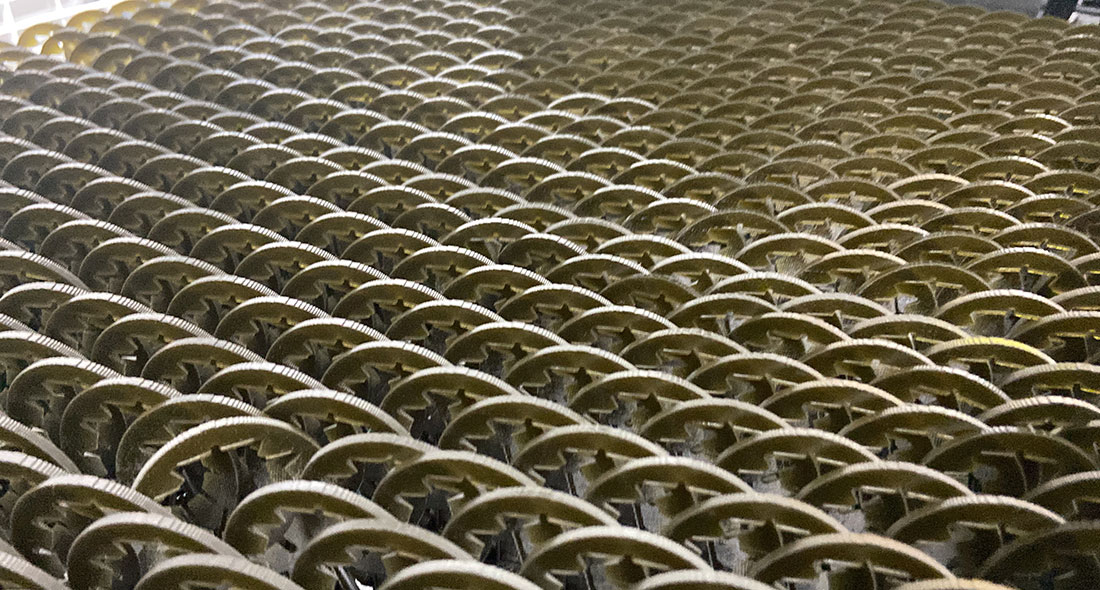
Solution – LC Magna
Merit3D offered a solution to the challenge by modifying the molding design and optimizing it for additive manufacturing. Specifically, the company optimized the design for Photocentric’s Liquid Crystal Magna printers. Merit3D’s iterative redesign process took a total of two weeks, resulting in a design that could be 3D printed efficiently and cost-effectively.
Merit3D used 20 printers to produce the hangers, with 400 hangers per platform, taking 225 minutes per platform. The material used was Ultracur3D® EPD1006 from Photocentric and BASF ForwardAM, which provided the ideal properties and passed the brutal durability test.
Eliminating costly injection mould tool
Merit3D’s additive manufacturing solution enabled Adhesives Technology to continue working with the order of 1,000,000 hangers, eliminating the need for a costly injection mold tool. The company’s solution also allowed for customizations and multiple design iterations to optimize the hangers for their specific use. The use of additive manufacturing technology also reduced waste and lowered the carbon footprint.
Photocentric’s Liquid Crystal Magna printers proved ideal for volume manufacturing due to their large format, high surface finish, fast production, cost-effective and functional resins, and low energy consumption.
Merit3D’s successful production on the order of 1,000,000 hangers using additive manufacturing technology demonstrates the potential of this technology for large-scale production. By optimizing the design for 3D printing and utilizing Photocentric’s Liquid Crystal Magna printers, the company is able to produce the hangers efficiently and cost-effectively.

